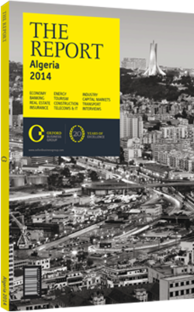OBG talks to Samy Laghouati, Partner, Gide Loyrette Nouel

Interview: Samy Laghouati
What is the decriminalisation of management acts?
SAMY LAGHOUATI: The decriminalisation of management acts is an enormous project that demands a complete reassessment of all of the legal specialities concerning business and management activities, including company, labour, economic, banking and criminal law.
While this question is typically viewed through the lens of state-owned companies, the penal risk is also very high for private-sector executives, particularly when compared to foreign legal systems. For example, the top manager of a business can be convicted in criminal court for hiring someone without first going through the public employment agency. The penalty itself is not unbearable, as the convicted generally only has to pay a small fine, but rather its criminal classification is. And yet, Algerian business law is full of offences that are classified as ordinary crimes, or délits.
The focus placed on the executives and officers of state-owned companies is not without reason. Top managers of state-owned firms are deemed to be public officials in the same manner as civil servants, according to the criminal law, and as such, they are subject to criminal offences specific to the public sector – classified as délits and carrying heavy sentences.
As a result, certain management decisions can be penalised like the squandering of public funds on the basis of the corruption law that, in particular, sanctions the act of "dissipating" the funds of a state-owned company. Such a notion, as it is not subject to any definition, allows for wide-ranging repression of management decisions, made all the more problematic as the crime is punishable by up to 10 years of imprisonment.
The consequence of such repression is, quite often, to stall or, at the very least greatly slow down, decision-making in public sector companies, preventing them from conducting business efficiently. This situation is reinforced by the fact that often no distinction is made between a poor decision on the one hand – which is inherent to any business and should only be punished through poor results for the business and, as the case may be, dismissal of the executive – and, on the other hand, a management decision that intentionally goes against the interests of the company or its shareholders, which should be penalised by law.
This substantial undertaking should be founded on certain guidelines – in particular, a preference for substantial financial sanctions (particularly fines); encouraging the possibility of out-of-court settlement through payment of large sums of money to avoid lengthy and expensive trials; reserving the class of délits and crimes for exceptional matters; and only handing down prison sentences for the most serious offences that are directly contrary to the company’s interests or to those interests that are protected by public policy. Above all, the success of such a project cannot be achieved without better training of the judiciary and court staff in economic matters, enabling the courts to make a distinction between poor management and criminal acts.
How should the new regulation concerning Algerian investments abroad be interpreted?
LAGHOUATI: In substantive terms, the new regulation is in line with and in the spirit of the regulatory framework that has been applied to date. The Currency and Credit Council has the discretionary power to authorise investments abroad. The new regulation, like its predecessor, does not require a reason to be given for refusal, although, in such a case, nothing would prevent a refusal from being challenged before the Conseil d’État on the grounds it was unfounded or abusive.
The real novelty, and one true restriction, is that this investment opportunity is available only to companies that can finance foreign investments with their own foreign currency funds. Indeed, the other requirements do not seem insurmountable.
This should not be seen as a gift to private sector bosses, allowing them to purchase foreign currency at the official rate. Rather, they are being allowed – albeit still with the discretion of the Central Bank – to use foreign currency, which they have earned, to invest abroad.
You have reached the limit of premium articles you can view for free.
Choose from the options below to purchase print or digital editions of our Reports. You can also purchase a website subscription giving you unlimited access to all of our Reports online for 12 months.
If you have already purchased this Report or have a website subscription, please login to continue.

